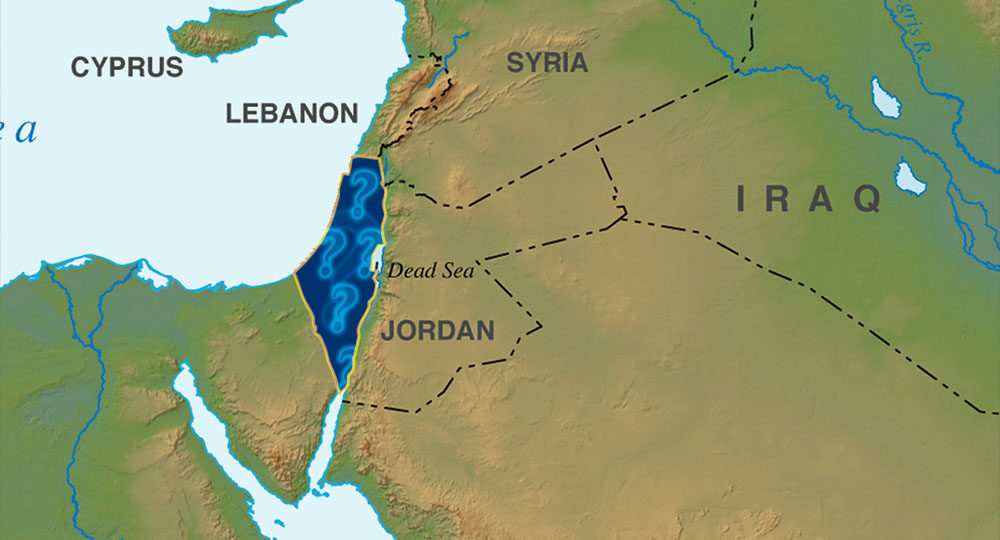Who is Israel?
To whom does the term Israel refer? Many Christians today claim the word Israel in the Bible refers to the church because the church, they say, has replaced Israel in God’s program for mankind. Others, including The Friends of Israel, say that Israel always means Israel and the church is never called Israel.
The first view, known as Replacement Theology, negates all Bible prophecy that has to do with a future, physical Kingdom of David over which Christ will reign for 1,000 years because it does not interpret prophecy in a literal manner. Dispensational Theology, however, uses a consistent historical-grammatical (also called plain or normal) approach to Bible interpretation.
Here, in their own words, are comments from both viewpoints, so you can easily see how they differ.
Micah 4:1–2
Now it shall come to pass in the latter days that the mountain of the Lᴏʀᴅ’s house shall be established on the top of the mountains, and shall be exalted above the hills; and peoples shall flow to it. Many nations shall come and say, “Come, and let us go up to the mountain of the Lᴏʀᴅ, to the house of the God of Jacob; He will teach us His ways, and we shall walk in His paths.” For out of Zion the law shall go forth, and the word of the Lᴏʀᴅ from Jerusalem.
Replacement View: Bruce Waltke sees present fulfillment, as “today all nations come to Mount Zion, to the heavenly Jerusalem, the city of the living God (Heb. 12:22), which was formerly symbolized by earthly Mount Zion.” Waltke believes that “prophecies about events prior to Pentecost find a material fulfillment….With Christ’s ascension from earth to heaven…the earthly material symbols were done away and the spiritual reality portrayed by the symbols superseded the earthly shadows.”1 Thus there is no future fulfillment by literal Israel, but a present fulfillment by “spiritual Israel,” meaning, the church.
Dispensational View: Gary Smith interprets the passage as describing the future: “Micah and all the other prophets think this new era will take place at the geographic location of Jerusalem (and that is how we should interpret the meaning of this verse)….Since there are still many Jews and Gentiles who have not come to God today, since there is still plenty of war around the world, and since God is not reigning as king on the earth, I conclude that this prophecy was not fulfilled in the New Testament period.”2
Matthew 19:28
Assuredly I say to you, that in the regeneration, when the Son of Man sits on the throne of His glory, you who have followed Me will also sit on twelve thrones, judging the twelve tribes of Israel.
Replacement View: Without explanation, Craig Blomberg rejects the plain meaning of the text: “Both the Twelve and Israel seem respectively to represent believers and lost humanity in general….The comparison of the Twelve with the twelve tribes of Israel again highlights the theme of the church replacing Israel as the locus of God’s saving activity in the new age.”3
Dispensational View: Dispensationalists refuse to reinterpret Israel, instead placing this passage in the eschatological future. Michael Wilkins sees it as “a future time of renewal, the hope that was basic to Jewish expectation of Israel’s future national restoration….Jesus predicts a time of renewal when the Twelve will participate in the final establishment of the kingdom of God on earth, when Israel will be restored to the land and the Twelve will rule with Jesus Messiah.”4
Acts 1:6–7
Therefore, when they had come together, they asked Him, saying, “Lord, will You at this time restore the kingdom to Israel?” And He said to them, “It is not for you to know times or seasons which the Father has put in His own authority.”
Replacement View: John Stott disparages the disciples’ question, assuming that it “must have filled Jesus with dismay. Were they still so lacking in perception?…The verb, the noun and the adverb of their sentence all betray doctrinal confusion about the kingdom. For the verb restore shows that they were expecting a political and territorial kingdom; the noun Israel that they were expecting a national kingdom; and the adverbial clause at this time that they were expecting its immediate establishment. In his reply (7–8) Jesus corrected their mistaken notions of the kingdom’s nature, extent and arrival.”5
Simon Kistemaker assumes that the church has replaced Israel: “If we interpret the text to mean the restoration of spiritual Israel, Jesus intimates that the disciples with their reference to Israel are too restrictive. The gospel of salvation is for all nations. Hence Jesus instructs them to be his witnesses in Jerusalem, in Judea and Samaria, and to the ends of the earth (v. 8). Conclusively, then, in light of Jesus’ answer it is possible and even plausible to give a spiritual interpretation of the apostles’ question.”6
Dispensational View: The dispensational view defends the disciples’ understanding of the Kingdom. Wrote Homer Kent Jr.: “It is obvious from their question that the kingdom referred to was the one which the Jews looked for Messiah to establish (Isa. 9:6–7; 11:10–12). Many conclude that this question indicated a complete misunderstanding of the nature of Christ’s kingdom….However, it must be noted that Christ’s answer did not say that there would be no literal kingdom. He merely said that the time of the establishment would not now be revealed to them.”7
This point distinguishes the dispensationalist from the replacement theologian: “The national future of Israel is most definitely assured….Jesus responded directly to their question about time. He most certainly did not resignify their understanding about ‘restoring the kingdom to Israel.’…There can be no doubt that this ‘restoration’ about which the Old Testament prophets spoke focused on national Israel,” wrote C. Blaising and D. Bock.8
Conclusion
Would that more theologians who replace Israel would reconsider their views, as did New Testament scholar C. E. B. Cranfield, who offered words of personal regret while commenting on Romans 9—11: “These three chapters emphatically forbid us to speak of the Church as having once and for all taken the place of the Jewish people….And I confess with shame to having also myself used in print on more than one occasion this language of the replacement of Israel by the Church.”9
ENDNOTES
- Bruce K. Waltke, “Micah,” The Minor Prophets (Grand Rapids: Baker, 1993), 2:678.
- Gary V. Smith, The NIV Application Commentary: Hosea, Amos, Micah (Grand Rapids: Zondervan, 2001), 508, 515.
- Craig L. Blomberg, The New American Commentary: Matthew (Nashville: Broadman Press, 1992), 301.
- Michael J. Wilkins, The NIV Application Commentary: Matthew (Grand Rapids: Zondervan, 2004), 651–52.
- John Stott, The Spirit, the Church, and the World: The Message of Acts (Downers Grove, IL: InterVarsity Press, 1990), 41.
- Simon J. Kistemaker, New Testament Commentary: Exposition of the Acts of the Apostles (Grand Rapids: Baker, 1990), 52.
- Homer A. Kent, Jr., Jerusalem to Rome: Studies in the Book of Acts (Winona Lake, IN; BHM Books, 1972), 22–23.
- C. Blaising and D. Bock, Progressive Dispensationalism (Wheaton, IL: Victor Books, 1993), 268.
- C. E. B. Cranfield, A Critical and Exegetical Commentary on the Epistle to the Romans (Edinburgh: T. & T. Clarke, 1979), 2:448.







